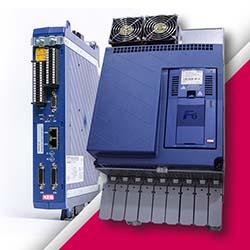Introducing Myriad X: Unleashing AI at the Edge
IIoT Deployments to Double: Manufacturers Reinvent Themselves with New Technologies
Why Startups Are the Future for the Industrial Internet
What is IO-Link
Amazon robots bring a brave new world to the warehouse
Endress+Hauser's IIoT Vision
Distribution Center Best Practices to Improve Safety & Efficiency
Has IIoT Become the Norm Across All Industrial Sectors? Industry Experts Say
IIoT Monitoring Finally Included with AGVs
Small Town America's Newest Product: Advanced Manufacturing
The SKF Smart Manufacturing Transformation
4 Process Trends Changing Manufacturing
Foxconn's Wisconsin plan raises skepticism as well as hope
IIoT and Industry 4.0 are Transforming Manufacturing
Japan is moving towards Neo-Industrial Manufacturing - Formation of Flexible Factory Partner Alliance
Records 1366 to 1380 of 1707
First | Previous | Next | Last
Automation & IIoT - Featured Product

